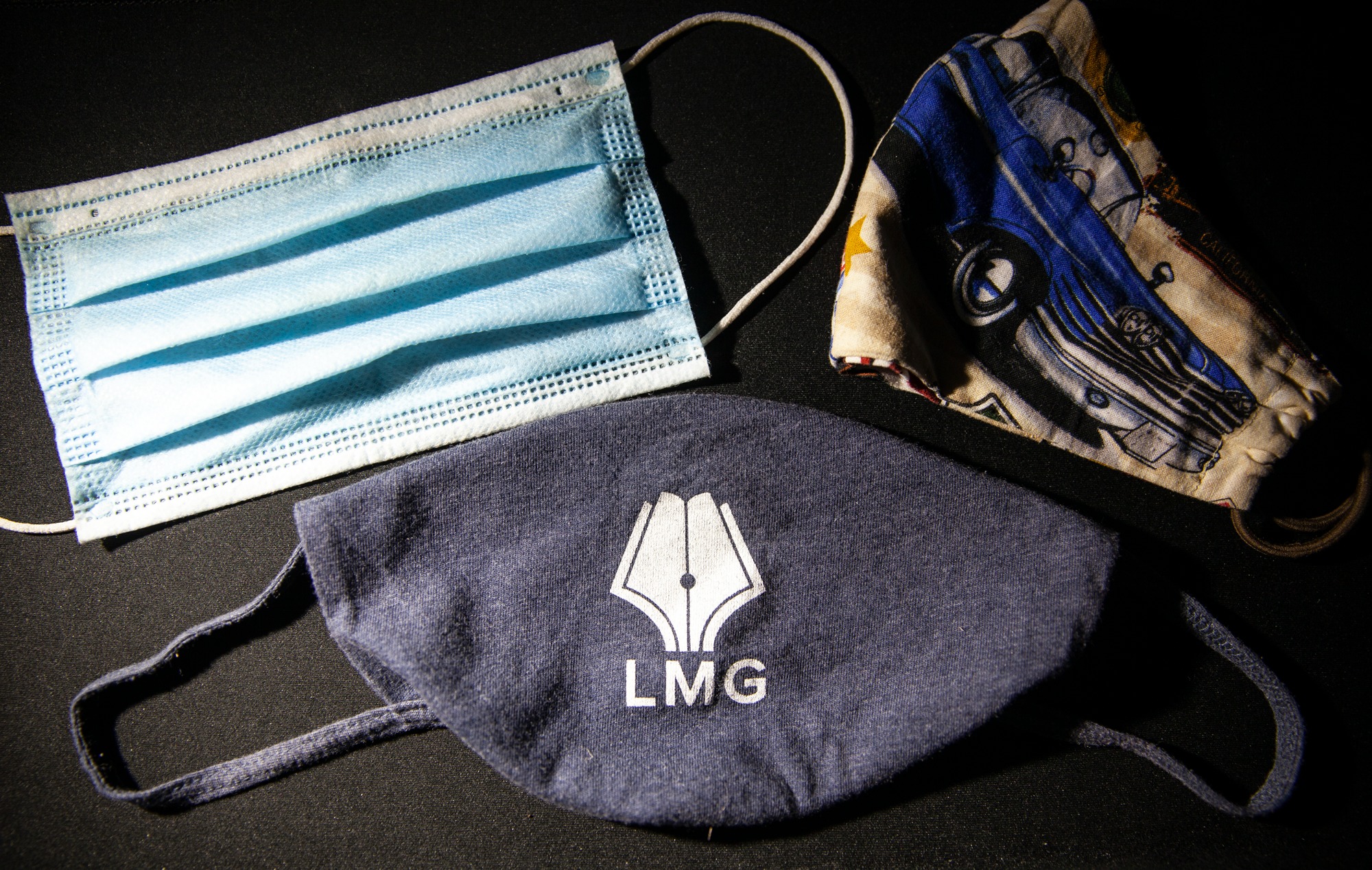
Since before the start of COVID-19, masks have been a symbol of protection and safety. However, novel coronavirus brought a shift in the mask mentality. Now an everyday item, masks have become similar to wearing pants – it would be strange to leave the house without them.
Brands like Old Navy, Tory Burch, Saks Fifth Avenue, and hundreds of online Esty stores are now designing fashionable masks for consumers. With the rise in designer masks also comes the options for people to sport their favorite patterns, colors or brands.
Dr. Carol Minton-Ryan, professor of sociology, said masks can add to our sense of individuality and self-expression.
“Initially it was something to cover the face. But now I’ve noticed people are trying to wear and organizations are providing masks that will help advertise their brand,” Minton-Ryan said. “It is evolving. I certainly think there are going to be people for whom masks are going to be used for identity purposes.”
The marketing of these designer masks is key, as it is causing a shift in the narrative surrounding face coverings. In recent months, masks have become a controversial topic. From a necessity to an accessory, the idea of wearing a mask is becoming more normal.
“Seat belts used to not be required,” Minton-Ryan said. “People were saying, ‘This is stupid. I choose not to wear a seat belt, it’s my own right.’ Then finally dawned on people. You are going to save your life and you are going to save the life of your children if you put them in seat belts or car seats. Now, I don’t think anyone thinks about a seat belt you just get in the car and you put your seat belt on.”
Levels of social stratification are also forming as a division grows between those who cannot afford masks and are forced to reuse them, and those who have specialized masks and can change them out throughout the week.
Dr. Julie Goodman-Bowling, associate professor of anthropology, said masks are contributing to a greater cultural cycle.
“Maybe masks will just be one way now that we throwback or a place where we see those cycles reproduce. … Masks are going to allow us to hide a little more and represent more or they will be this sort of show,” Goodman-Bowling said. “The idea is that masks are symbolic they mean something more. I think it is going to change our idea of what is cool. Our perception is changing, we don’t really care so much if it’s cool, we just want to be safe.”
Masks as a fashion statement might be surprising to some people. However, to others it is an expression of individuality and control. During this season of extreme uncertainty, masks are quickly becoming an avenue to show creativity and self-expression for many individuals.
“Right now, in our country, it feels like we are being regulated on so many fronts,” Goodman-Bowling said. “If this thing is as terrible and horrible as they say that it is, then this is a big deal then we need to take it seriously and do what we can to stop the pandemic. Businesses are being shut down, schools are being shut down, jobs are being lost and these are all out of our control. The one thing I can control is whether or not I put that mask on when I go outside. That is actually a very important psychological freedom that people are expressing.”
In unpredictable times, people often cling to any sort of control they can maintain.
“With how fast fashion evolves even before masks, I think it’s very possible masks can be used in fashion beyond the use in public health,” said Nick Clift, junior behavioral science major. “It will help the perception of masks. It is easier to wear a mask when you are representing something you like versus making a political statement on a public health crisis.”


